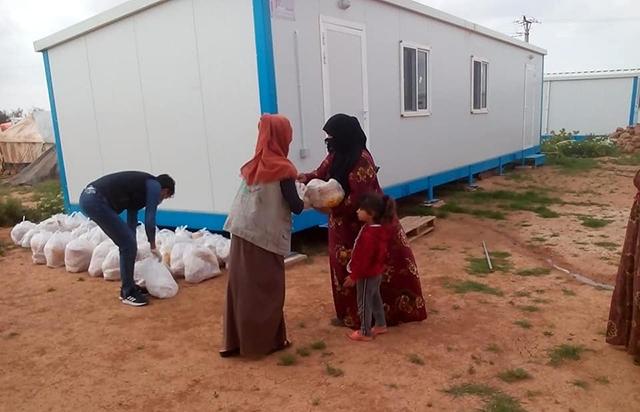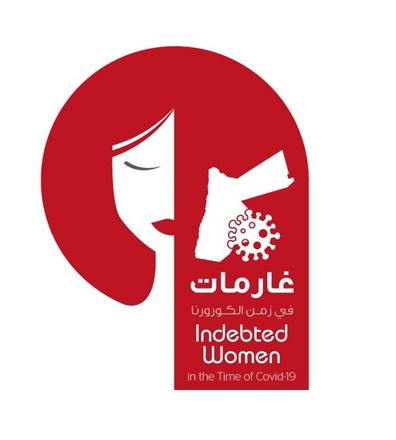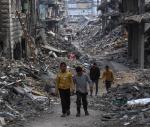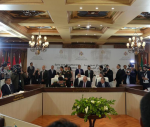You are here
JONAF launches phase 2 of its response plan to combat 2nd wave of COVID-19
By JT - Nov 15,2020 - Last updated at Nov 15,2020
AMMAN — In efforts to activate the role of local organisations in supporting the government, the Jordanian National NGOs Forum (JONAF), consisting of over 40 local organisations from around the Kingdom, came up with a plan to address the second wave of COVID-19 and its exacerbated ramifications on health, economy and social aspects of life.
The second phase of its response plan, which will last for three months, complements the immediate response plan it had launched in March 2020, according to a JONAF statement.
The first phase had a considerable impact as aid was delivered, amid exceptional circumstances and with limited funding, to over 100,000 people from the most vulnerable groups, such as women, children, people with disabilities, the elderly, day labourers, guest workers, refugees and immigrants throughout the Kingdom.
The second phase focuses on four aspects. The first is centred on protection and prevention and includes regular assessments of the needs of the most impacted groups, working closely with the government, within the response frameworks, and offering the expertise of the forum members, developing capacities of local member organisations in providing qualitative gender-responsive aid, and building on the values of solidarity and collaboration within the community.
The second focuses on providing aid that ensures the health and livelihood needs of the communities are met, including providing legal and social protection services and emergency lines, and the establishment of referral systems within the concerned organisations and establishments.
The third manages information to support policies and decision-making processes to deliver a better response to crises, including collecting and disseminating information through various media outlets, assessing the gaps, revealed throughout the crisis, related to human resources, labour rights, social protection, taxes, etc., preparing policy briefs at local, national and international levels to ensure that decisions are being made in light of the information and advocacy efforts are exerted based on facts.
Fourth is ensuring a comprehensive collaboration with the government throughout the period needed to respond to the COVID-19 pandemic.
Samar Muhareb, coordinator and member of the steering committee of JONAF, said: “What is happening in Jordan requires recognition of the role of local civil society organisations in exerting comprehensive efforts to respond to the increasing needs of the population, ensuring a participatory approach of all groups of society and amplifying their voices, including them in the response in order to utilise all efforts that can contribute to limiting the consequences of the crisis, and encouraging initiatives and taking responsibility for finding a solution and being part of it.”
Sawsan Al Majali, co-founder of Durrat Almanal for Development and Training, and member of the JONAF steering committee, said: “The whole world is facing the second and third waves of the pandemic, which requires governments and communities to work hard to implement the measures necessary to protect the well-being of communities and economies.
“This is only achievable through the collaboration of civil society and governments, as each one of us has a role that starts with committing to basic health protection measures and ends with supporting our communities. We are all together in this battle, we must be proactive and do what is best for the interest of our country and community.”
Linda Al Kalash, CEO of Tamkeen for legal aid and human rights said: “Day labourers and guest workers and their families are still enduring massive burdens, embodied in multiple closures and curfews, as well as lack of access to digital social protection services and platforms.”
Manal Al Wazani, CEO of Durrat Almanal, said that civil society organisations in Jordan are capable of fulfilling their social role as supporting institutions to the government efforts as they possess a network of technical expertise and advanced databases related to responses to a pandemic, which must be invested in order to limit the ramifications of the pandemic.
JONAF steering committee members stressed the importance of the role of media in supporting these efforts and raising awareness about individuals’ role in limiting the ramifications of the pandemic.
They also emphasised the importance of the private sector’s support to these efforts and ensuring the social protection of the most vulnerable groups through solidarity, donations and assuming social responsibility towards the community.
Related Articles
AMMAN — As part of its endeavours to lead the efforts exerted in humanitarian response and development in Jordan, the Jordanian NGOs Forum (
AMMAN — After the success of the first phase of Jordan NGOs Forum’s (JONAF) response plan, initiated at the start of the COVID-19 pandemic,
AMMAN — With the continuous negative impact of the COVID-19 pandemic on the national economy, more women have become ensnared in chronic deb


















